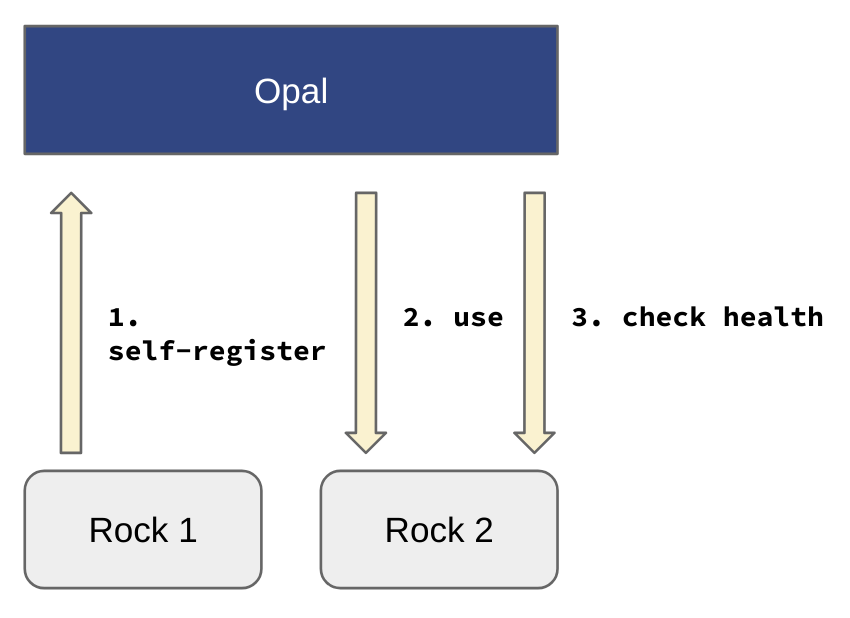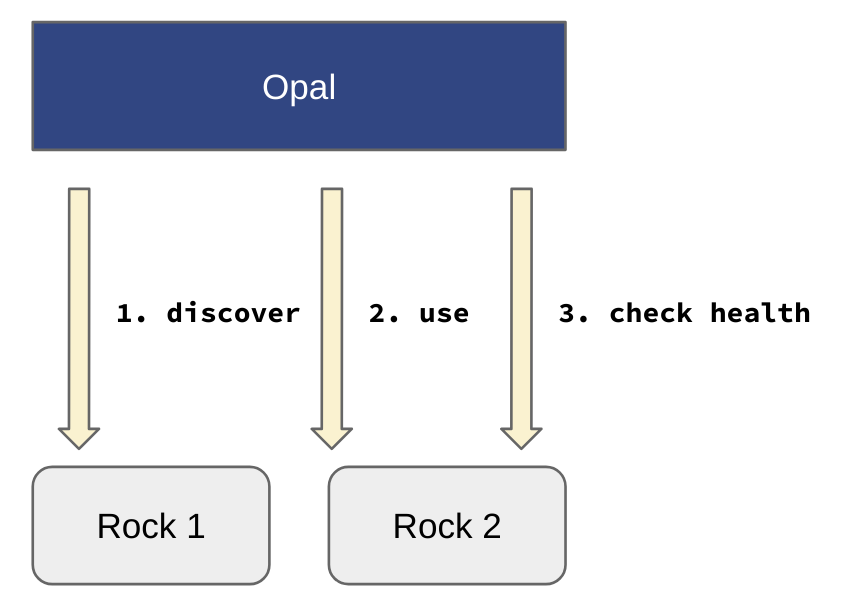Apps¶
An application is an external service that can be used by the system. Applications can be discovered from their URL or can register themselves using the application authentication token.
Registry¶
The registered apps can be unregistered. Note that an app that was discovered, will be automatically registered again. To remove it completely it is necessary to remove it from the apps discovery configuration and then unregister it.
Configuration¶
For now, the only type of app known and supported is the Rock R server.
Self-registration¶
To register itself, an application must provide a registration token in its request. See Apps Configuration to set a default value for this token. Then periodical checks are performed: if the application cannot be reached or reports to be dysfunctional, it is automatically unregistered. With the self-registration mechanism it is easy to add more computation power to Opal without changing the configuration.
Edit Registration Token¶
The apps registration token can be defined at system level (see Apps Configuration) and overridden from this administration page. Use the Generate button to create a secure token. Leave empty to reset to system’s default.
Discovery¶
Applications can be discovered at runtime. When discovered, the application is automatically registered. Then periodical checks are performed: if the application cannot be reached or reports to be dysfunctional, it is automatically unregistered. See Apps Configuration for setting the discovery interval and the default hosts to lookup. With the discovery mechanism it is easy to set up some default external services.
Add Rock App¶
Add a Rock R server to discover, by providing its URL (http…) and selecting an authentication strategy:
- Default, the credentials specified by the system configuration will apply (see R Server Configuration).
- Administrator, Opal will use a Rock administrator user both for managing the R server (start/stop server and install/remove packages) and creating R sessions.
- Manager and User, Opal will use a Rock manager user for managing the R server and a standard Rock user for creating R sessions.
See Rock Security documentation.

